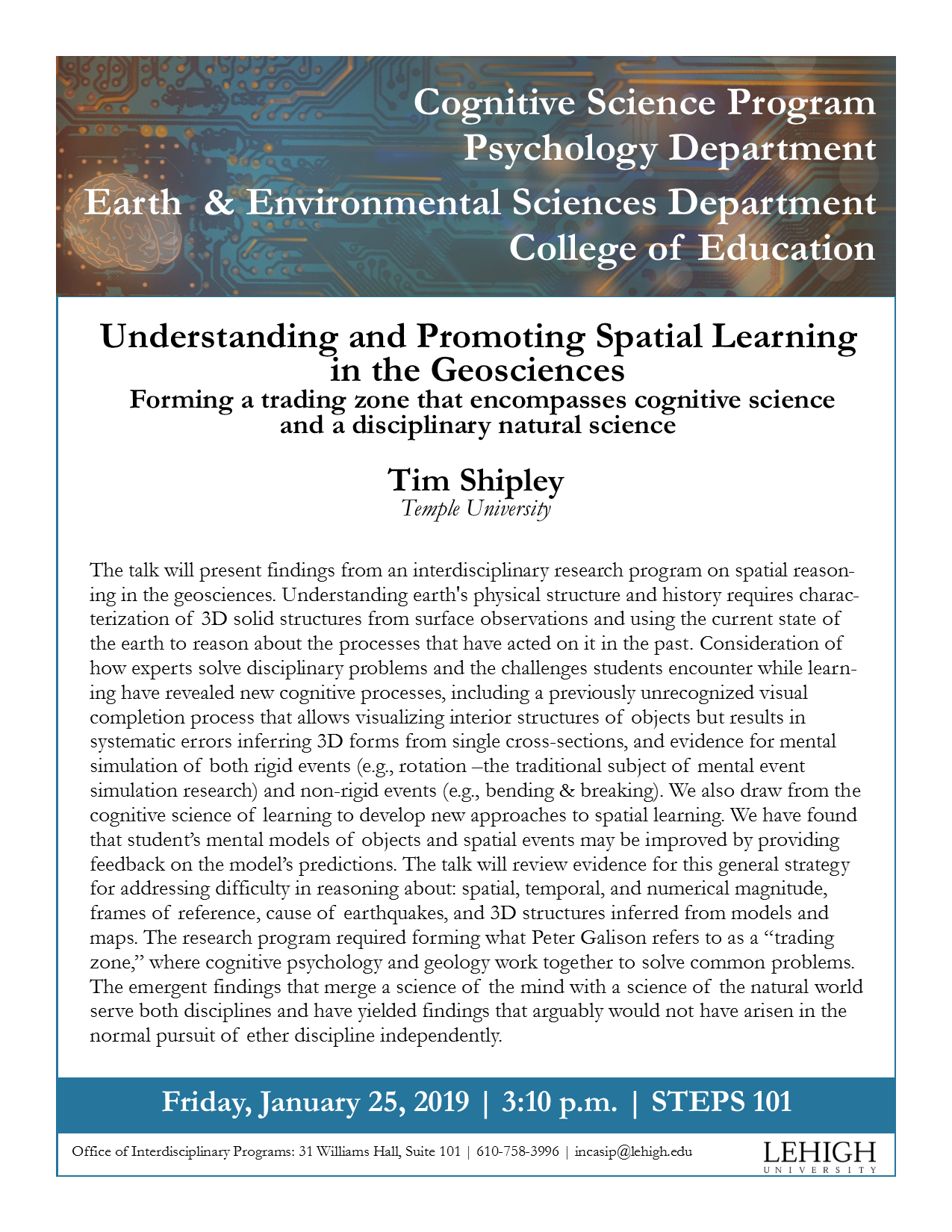Friday, January 25, 2019 - 3:10pm
Place:
STEPS 101
Understanding and Promoting Spatial Learning in the Geosciences: Forming a trading zone that encompasses cognitive science and a disciplinary natural science
Tim Shipley
Temple University
The talk will present findings from an interdisciplinary research program on spatial reasoning in the geosciences. Understanding earth's physical structure and history requires characterization of 3D solid structures from surface observations and using the current state of the earth to reason about the processes that have acted on it in the past. Consideration of how experts solve disciplinary problems and the challenges students encounter while learning have revealed new cognitive processes, including a previously unrecognized visual completion process that allows visualizing interior structures of objects but results in
systematic errors inferring 3D forms from single cross-sections, and evidence for mental simulation of both rigid events (e.g., rotation –the traditional subject of mental event simulation research) and non-rigid events (e.g., bending & breaking). We also draw from the cognitive science of learning to develop new approaches to spatial learning. We have found that student’s mental models of objects and spatial events may be improved by providing feedback on the model’s predictions. The talk will review evidence for this general strategy for addressing difficulty in reasoning about: spatial, temporal, and numerical magnitude, frames of reference, cause of earthquakes, and 3D structures inferred from models and maps. The research program required forming what Peter Galison refers to as a “trading zone,” where cognitive psychology and geology work together to solve common problems. The emergent findings that merge a science of the mind with a science of the natural world serve both disciplines and have yielded findings that arguably would not have arisen in the normal pursuit of ether discipline independently.
Co-sponsors:
Cognitive Science Program
Psychology Department
Earth & Environmental Sciences Department
College of Education

